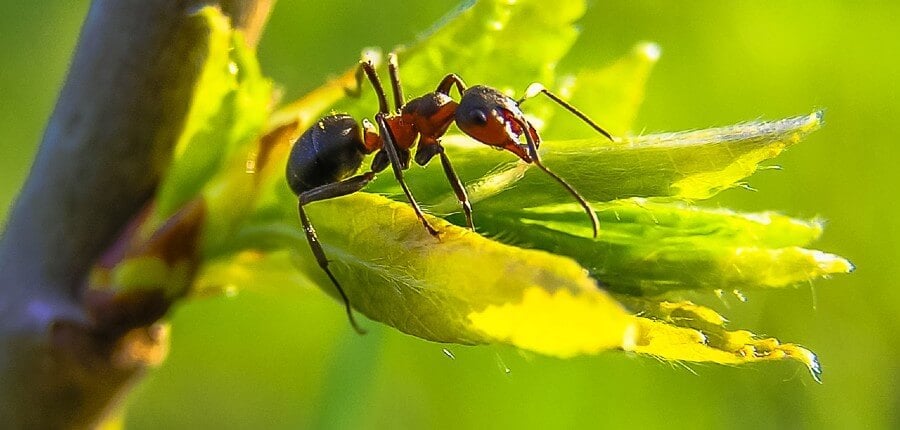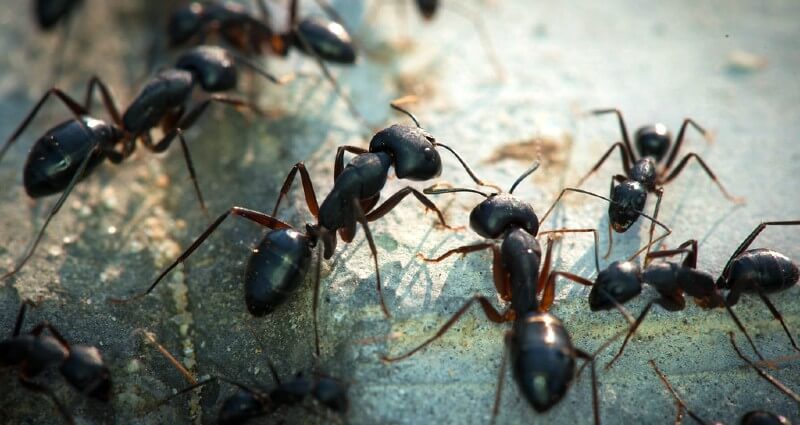Comprehensive Termite Control: Secure Your Home with Professional Services
Comprehensive Termite Control: Secure Your Home with Professional Services
Blog Article
Ecological Influence of Parasite Control: Harmonizing Performance With Sustainability
The environmental impact of parasite control is a crucial concern that needs a fragile balance between accomplishing performance in making certain and managing pests sustainability of our ecological communities. From the use of harmful chemicals that seep right into our dirt and water to the unplanned effects on non-target species, the repercussions of conventional bug control practices are significant.
Hazardous Chemicals in Insect Control
The use of harmful chemicals in insect control postures substantial ecological and health risks that necessitate careful factor to consider and mitigation strategies. Pesticides, herbicides, and pesticides are frequently made use of to remove pests, but their prevalent application can bring about unintended consequences. These chemicals can infect dirt, water sources, and the air, impacting not only the targeted insects yet also useful bugs, wildlife, and human beings.

To resolve these risks, incorporated insect administration (IPM) techniques are being promoted as a much more lasting choice. IPM entails a combination of techniques such as biological control, environment adjustment, and the targeted use of pesticides as a last resource (ant control salisbury nc). By embracing a holistic approach to pest control, we can lessen the ecological and health and wellness effects connected with dangerous chemicals while efficiently handling pest populaces
Influence On Non-Target Variety
Thinking about the unintended repercussions of pest control methods, the influence on non-target species is an essential aspect that needs extensive analysis. While insect control steps intend to target details insects, various other microorganisms in the community may be unintentionally affected. Non-target types, consisting of advantageous bugs, birds, mammals, and also plants, can experience straight or indirect damage from pesticide applications or organic control techniques.
Pesticides designed to combat a particular bug pest may harm pollinators like or all-natural killers such as ladybugs. Organic control representatives, if not species-specific, can present risks to unplanned targets, interrupting the eco-friendly balance.
To mitigate the effect on non-target types, integrated parasite administration (IPM) methods that emphasize an alternative technique to pest control are suggested. These techniques prioritize using environmentally friendly techniques, reducing injury to useful microorganisms while successfully managing pest populaces. Conducting thorough danger analyses and keeping track of the end results of pest control initiatives are necessary action in securing non-target species and advertising general ecological look at here community health.
Soil and Water Contamination
Unintended ecological effects of pest control techniques expand past influencing non-target varieties, with significant effects for dirt and water contamination - termite control services. Pesticides, herbicides, and chemical fertilizers made use of in bug control can leach right into the soil and contaminate groundwater, posing a threat to both aquatic and terrestrial communities.
Water contamination is one more critical concern associated with insect control techniques. To mitigate dirt and water contamination from parasite control tasks, integrated parasite monitoring techniques that prioritize sustainability and decrease chemical inputs are crucial.
Air Air Pollution From Chemical Use
Exposure to air-borne pesticides throughout agricultural applications poses a considerable issue for air contamination control procedures. In addition, chemical drift, where pesticides are lugged by the wind to unexpected locations, can lead to the contamination of neighboring communities and water bodies.

Techniques for Lasting Parasite Control
In the world of agricultural methods, applying sustainable insect control methods is critical for preserving eco-friendly equilibrium and protecting plant yields. Lasting pest control stresses making use of eco-friendly approaches to handle bug populations effectively while lessening injury to non-target organisms and environments. Integrated Bug Administration (IPM) is a commonly embraced approach that integrates organic, cultural, physical, and chemical control techniques to attain long-lasting bug management remedies.
One trick strategy in lasting parasite control is promoting biodiversity within agroecosystems. By improving natural adversaries of insects, such as parasitoids and killers, farmers can reduce the requirement for artificial chemicals. Plant turning and diversity are additionally reliable strategies to disrupt pest life process and produce much less positive problems for pests to flourish. Additionally, utilizing pest-resistant plant ranges and utilizing strategies like trap cropping can help lower bug stress without counting heavily on chemical interventions. Ultimately, by incorporating these lasting parasite control methods, farmers can attain a balance in between pest administration performance and ecological stewardship.
Final Thought
In final thought, the ecological influence of insect control methods must be carefully thought about to balance performance with sustainability. Dangerous chemicals utilized in bug control can lead to dirt and water contamination, air pollution, and injury non-target types - ant control services. It is crucial to apply lasting insect control methods to lessen these adverse effects on the atmosphere and advertise a healthier environment for future generations
By adopting an alternative approach to pest control, we can minimize the ecological and wellness influences connected with harmful chemicals while efficiently managing pest populations.

To minimize the air contamination created by pesticide usage, it is essential to adopt incorporated pest monitoring methods that focus on the use of non-chemical parasite control approaches, such as crop turning, natural predators, and immune crop varieties. Sustainable parasite control emphasizes the usage of eco pleasant techniques to take care of pest populations successfully while reducing harm to non-target microorganisms and communities. Integrated Bug Management (IPM) is a widely taken on method that incorporates biological, social, physical, and chemical control techniques to accomplish long-lasting pest administration solutions.
Report this page